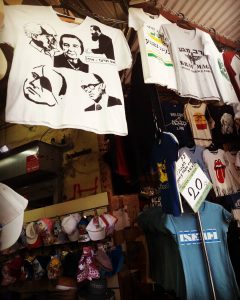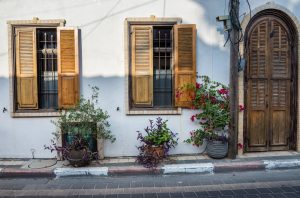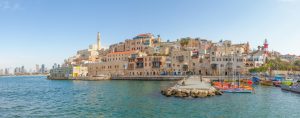In this blog post, you will find a Tel Aviv shopping guide to discover the best shops when you visit Tel Aviv, one of the world’s most energetic cities. Tel Aviv was defined as the Mediterranean Capital of Cool by the New York Times.

A Tel Aviv Shopping Guide
The Big Carmel Market
The Shuk Hacarmel, i.e., Carmel Market, is a surprising, fantastic place to find whatever you are looking for. It is a big market where all local fresh food types are sold in different stalls; moreover, there are also typical restaurants and cafes inside the market. Carmel Market is the largest market in Tel Aviv, where you will find spices, vegetables, fruit, clothes and electronics. The colours and smells are unique in this market, which is an authentic Middle-Eastern shuk. Moreover, you will find the freshest veggies and fruit at low prices.

Since 1920, Carmel Market became a trade centre after eleven years from the foundation of Tel Aviv. Even nowadays, Carmel Market remained a significant commercial landmark. The location of Shuk Hacarmel is central and easily reachable. Indeed, it is at an intersection of King George Street, Allenby, and Sheinkin Street. This market is open from the early mornings of every weekday but Saturday when it is closed. In the evenings, the shuk is close at around 7 pm, but it closes earlier, around lunchtime on Fridays.
Kikar Hamedina
Kikar Hamedina is the largest square in Tel Aviv, and it is the New York Fifth Avenue of the city. With its luxurious boutiques of upscale fashion and jewellery, it is one of the most exclusive shopping places in Tel Aviv. The architect Oscar Niemeyer designed this circular plaza, which connects the north-south Weizmann Street, and the east-west Jabotinsky Street.
Ramat Aviv Mall
Ramat Aviv Mall is an exclusive mall in the expensive northern area of Ramat Aviv in Tel Aviv. The mall consists of boutiques that sell luxury international and Israeli brand products. Indeed, it is the most luxurious mall in Israel, and it is the 35th highest-priced mall in the world.
Dizengoff Center Mall
Dizengoff Center Mall is the more central shopping centre of Tel Aviv with a total of 60,000 meters. It is located at the intersection of Dizengoff Street and King George Street. The mall is named after Meir Dizengoff, who was the first mayor of Tel Aviv. It consists of about 400 stores, one cinema, restaurants, cafes, and the world’s most unique shops. Moreover, the mall has a rooftop with urban agriculture where soil-free vegetables such as green leaves and herbs grow. In 2015, Dizengoff Center won the “Green Business” category at the Green Globe Awards, Israel’s Environmental Oscar. The first business in the mall started in 1977, it became a large shopping centre.
Shenkin Street
Shenkin Street is a small street full of restaurants, cafes and elegant boutiques. You will find a lot of boutiques that sell original Israeli artworks and clothes. It is a trendy street that is a pedestrian and close to Carmel Market and Nachalat Binyamin. In Shenkin Street, there is also a small park to enjoy a shopping break.
Neve Tzedek
Neve Tzedek is the oldest Jewish neighbourhood of Tel Aviv, and it is featured by small streets with elegant buildings and exclusive boutiques. This neighbourhood dates back to 1887, which means 20 years before creating the city of Tel Aviv. In the beginning, Newe Tzedek or Neve Tzedek has been established by Jewish families coming from Jaffa. The first inhabitants sought a calm area; hence, they built low colourful buildings in narrow streets.

Since the beginning of 1900, Neve Tzedek became the creative centre for many artists and writers, including the Nobel prize laureate Shmuel Yosef Agnon and the renowned artist Nahum Gutman. In the 1980s, the neighbourhood was rebuilt, and nowadays, it is still an artistic centre with elegant boutiques, artisanal jewellery, art galleries, restaurants and cafés. Additionally, Neve Tzedek always keeps the features of a quiet district whose main street is Shabazi Street, crowded with original boutiques, art galleries and artisan shops. Moreover, the Suzanne Dellal Center in Tel Aviv’s dance centre close to a beautiful court with gardens.
Jaffa Flea Market
In Jaffa Flea Market, i.e. Shuk Hapishpishim, original ancient and vintage items are sold in an oriental and flamboyant atmosphere. During a promenade, it is lovely to discover artworks and attend to the Israeli cultural life. Jaffa Port is the most ancient harbour globally and is located in the southern part of Tel Aviv. It is indispensable to visit Jaffa Flea Market for its unique history and ambience. Indeed, in this market, there are a lot of ornamentations and old treasures. There are Judaica furnishings and artworks in the shops, Persian rugs and carpets, antiquities, vintage jewellery, and ancient coins.

Moreover, you will find many places where to state gourmet and typical food. As in most of the shops in Israel, the Jaffa Flea Market opens from Sundays up to Thursdays, from around 10 am till 6 pm, and on Fridays, it is open only up to 2 pm because of Shabbat. Nevertheless, the market’s surroundings are vivid days and nights, full of bars and restaurants.
Nachalat Binyamin Market
The Market of Nachalat Binyamin is open twice per week, on Tuesdays and Fridays, and it is in the very centre of Tel Aviv. Indeed, it is at the intersection with Allenby Street, King George Street, and Sheinkin Street. Moreover, this market is close to Carmel Market, and Nachalat Binyamin Market is the largest and most intriguing arts and crafts market in Israel. Every Israeli artwork is original and handmade besides some replica of vintages.

Levinsky Market
The Levinsky Market is in the trendy Florentin district, which dates back to the 1930s when immigrants from Greece started to settle down in this neighbourhood. The first spice shops with special Balkan spices and Balkan and Israeli eateries began their business. Hereafter, Iranian immigrants came to bring their typical Persian delicacies and spices, and they also opened restaurants. The Levinsky Market never stopped to expand, and nowadays, the market includes bakeries, restaurants, and shops selling veggies, dried fruits, nuts and other local treats. Levinsky Market begins at the corner of HaAliya Street and ends up close to HaMashbir Street, and it is 10 min walk from the New Central Bus Station of Tel Aviv.

Certainly, Tel Aviv’s city doesn’t miss a shopping place where every kind of product could be found easily. And it is fun to conciliate the tourist tours with shopping breaks.

